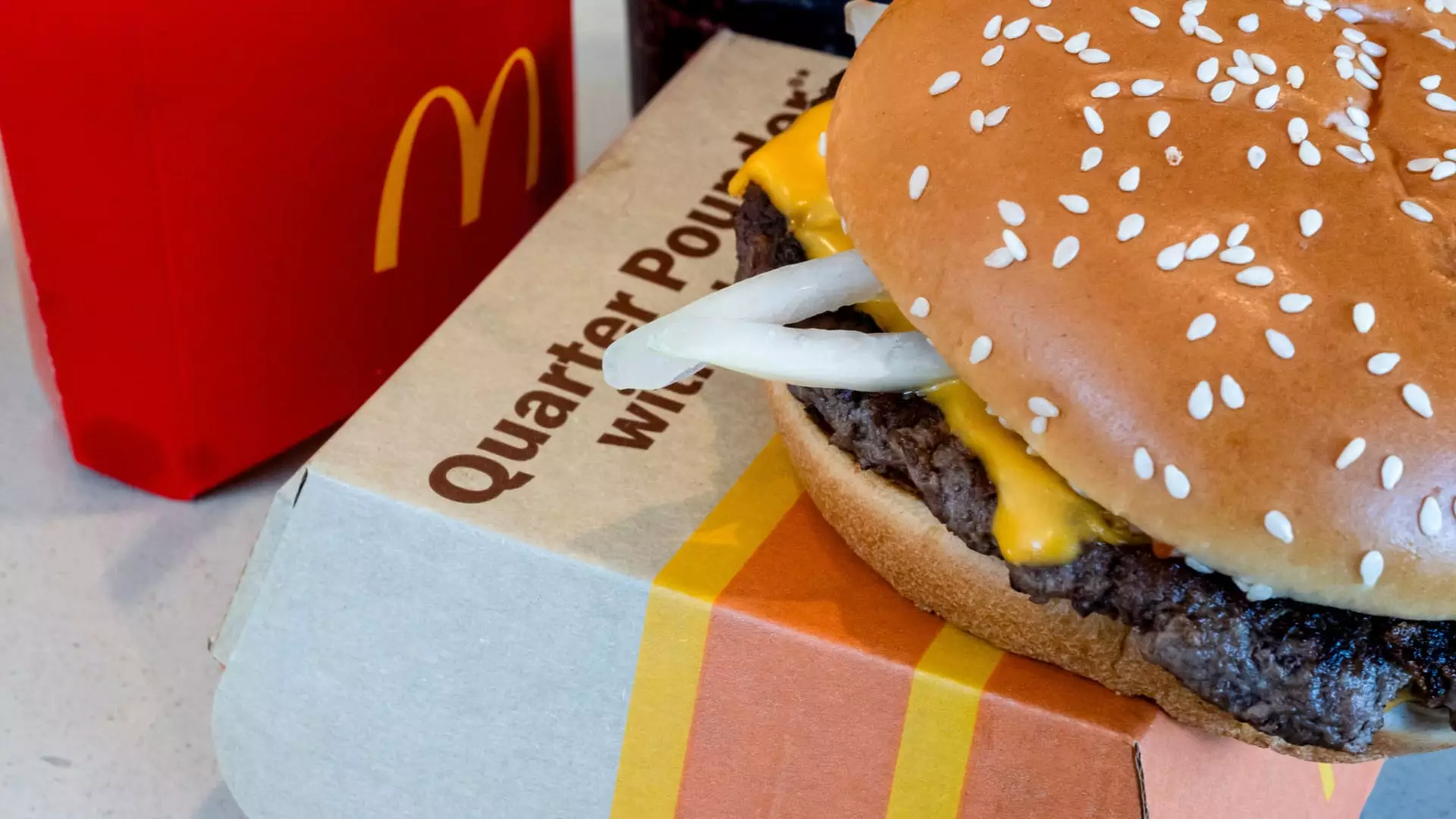The recent E. coli outbreak traced back to McDonald’s Quarter Pounders has sent shockwaves across the fast food industry, stirring significant concern among consumers and investors alike. With the Centers for Disease Control and Prevention (CDC) reporting 75 confirmed cases across 13 states, the gravity of the situation has intensified. The implications of this outbreak extend beyond the immediate health risks, hence dissecting its ramifications further is crucial for understanding its potential impact on a major player in the fast-food sector.
As of the latest updates, the outbreak has resulted in 22 hospitalizations and confirmed the death of an elderly individual in Colorado. Alarmingly, among those who fell ill, two patients developed hemolytic uremic syndrome—a severe complication that can threaten kidney function. These clinical details underscore not only the outbreak’s scale but also the urgency of the CDC’s investigation into its source. The CDC has emphasized that the reported case totals may be just the tip of the iceberg. Many individuals likely recover from E. coli infections without medical intervention, meaning the actual number of affected people could be far higher.
Data indicates that the ages of reported cases ranged from 13 to 88, showcasing that this is not an issue limited to a specific demographic. Given that the CDC has established a direct link between the patients and the consumption of McDonald’s fare, it raises critical concerns regarding food safety protocols—something consumers expect from a giant in the industry.
In light of these developments, McDonald’s has reacted decisively by halting the distribution of slivered onions in regions impacted by the outbreak. This move comes on the heels of the identification of Taylor Farms, a California-based produce supplier, as the source of the potentially contaminated onions. The recall of four raw onion products by Taylor Farms adds layers of complexity to this situation, as it not only raises questions about the supply chain efficacy but also puts additional pressure on McDonald’s to ensure the integrity of its ingredients.
While the company has refrained from making extensive public comments about the outbreak, it did affirm its commitment to food safety. Such statements may not suffice, however, as public sentiment often drives perceptions of corporate responsibility. As was evidenced during similar crises faced by other fast-food chains, transparency and prompt communication become paramount in retaining consumer trust.
The outbreak has visibly affected McDonald’s stock performance, with shares dropping 2% post-announcement and a cumulative decline of 6% since the outbreak made headlines. This market reaction underscores the interconnectedness of public health crises and corporate profitability, where the fear of declining consumer patronage can have immediate financial repercussions. Analysts predict that the CDC’s investigation will continue to cast a long shadow over McDonald’s upcoming quarterly earnings report, with expectations of only modest growth in same-store sales amid a challenging economic climate.
In the face of rising inflation and changing consumer behaviors, which have made dining out less appealing for price-sensitive patrons, the timing of this outbreak could not be worse. The fast-food giant has historically relied on the popularity of its signature items like the Quarter Pounder, making its removal from menus in numerous restaurants a palpable hit.
While this outbreak might seem like a specific incident, it has broader implications for McDonald’s branding and consumer trust. Previous outbreaks, such as the one involving Wendy’s, caused short-term turmoil but did not seem to create lasting damage to the brand’s reputation. Yet, the landscape is shifting, and consumers are increasingly conscious about food safety and sourcing practices. In today’s market, where information spreads rapidly, a single incident can linger in the public’s perception far longer than it did in the past.
Going forward, McDonald’s must not only address the immediate crisis but also reassure consumers about their commitment to food safety and quality. Engaging with the public transparently, sharing detailed information about safety protocols, and reinforcing accountability throughout their supply chain will be essential in mitigating the fallout from this outbreak.
The E. coli outbreak connected to McDonald’s Quarter Pounders is not merely a health issue but a complex intersection of corporate responsibility, consumer trust, and financial viability. As investigations proceed, how the company navigates its response will likely define its reputation in the long run. With consumers more vigilant than ever, McDonald’s must prioritize transparent communication and swift action to uphold its position as a leader in the fast-food industry while ensuring customer safety remains at the forefront.


Leave a Reply